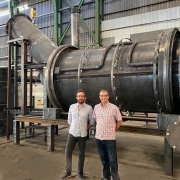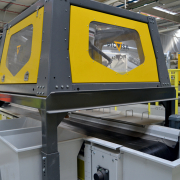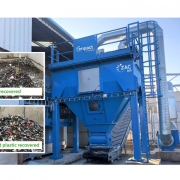Circular Economy Is a Window of Opportunity
According to a new report by Morgan Stanley’s Sustainability Equity Research team, new technology and increasing climate-based legislation around the world is creating new business opportunities based on the circular economy.
As the New York based investment research firm stated, pioneering companies in a number of sectors were already shifting in that direction. “The advantages for companies are numerous and center on increasing the amount of value they create and retain,” Jessica Alsford, lead author of the report “The Shift to a Circular Economy”, is cited. “The circular economy is unlikely to be a key fundamental value driver for many stocks at this stage, but we do think that the move to a more circular economy will be a disruptive trend in the next few years. Those companies that move first to innovate and adapt should be well placed.”
Environmental concerns helped to spark this shift, the research team underlined. “The global economy, driven by the consumer frenzy to have the latest, fastest, best new model, now must contend with climate change, water scarcity and damage to the physical environment. A ‘sharing economy’ mentality has flourished, with people sharing car rides and renting out space in homes rather than paying for hotels. Legislation, particularly in Europe, but also in parts of Asia and certain states in the U.S., has also increased requirements to ‘waste not, want not’ ”.
Companies that embrace these trends can find new revenue streams and cut costs, the researchers are convinced. Minimizing waste reduces cost and changes in product design could make refurbishment and remanufacturing more viable. “Some are adopting entirely new business models which profit from extending the use of new products and then recycling the materials. This could give them a first-mover advantage over their competitors, especially if a more economizing consumer base continues to grow.”
Expanding the Customer Base
According to Morgan Stanley’s Sustainability Equity Research team, extending the life of existing products seems counterintuitive for businesses, but it does make sense. Remanufacturing and re-selling products could save on the cost of raw materials and expand market reach to include consumers unable to afford the latest new models of electronics like cell phones. “Remanufacturing retains much of the material and value included in the original product,” Alsford is quoted. “This saves costs for the manufacturer with the potential for higher profit margins and returns on capital. It also potentially creates new customer opportunities by making expensive products more affordable.”
New innovations and technologies support the move toward a circular economy. In textiles, chemical processes are being developed to separate blended fibers and recycle the raw materials into new clothes. In the batteries market, economical recycling of lithium batteries is key as demand for hybrid and electric vehicles accelerates.
Winners and Losers
The rise in a circular economy has macro implications because it boils down to using less finite resources, the researchers stressed. Having access to refurbished products would mean more spending power for the individual, which could boost the gross domestic product, according to a McKinsey study cited in the Morgan Stanley report. Importers of finite resources would also benefit.
As reported, the potential losers are the exporters of primary metals and other finite resources, and they tend to be developing rather than developed countries. “The net effect would largely depend on a country’s ability to embrace new business models to offset any decline from primary raw materials.”
Read more at www.morganstanley.com/ideas/circular-economy-recycling.
Photo: Morgan Stanley
GR 22017








